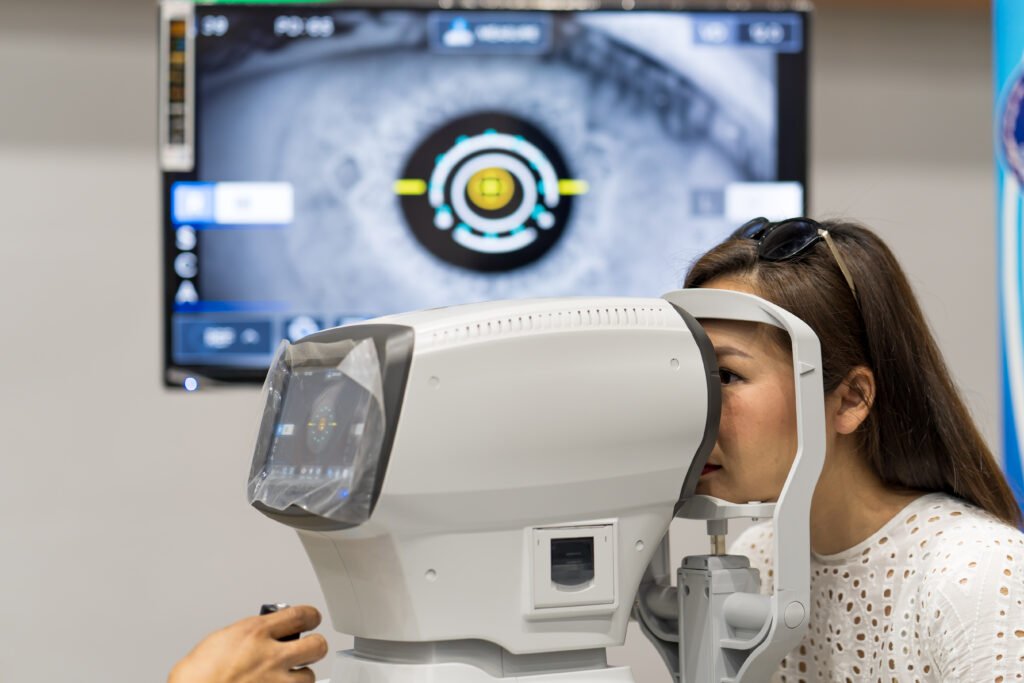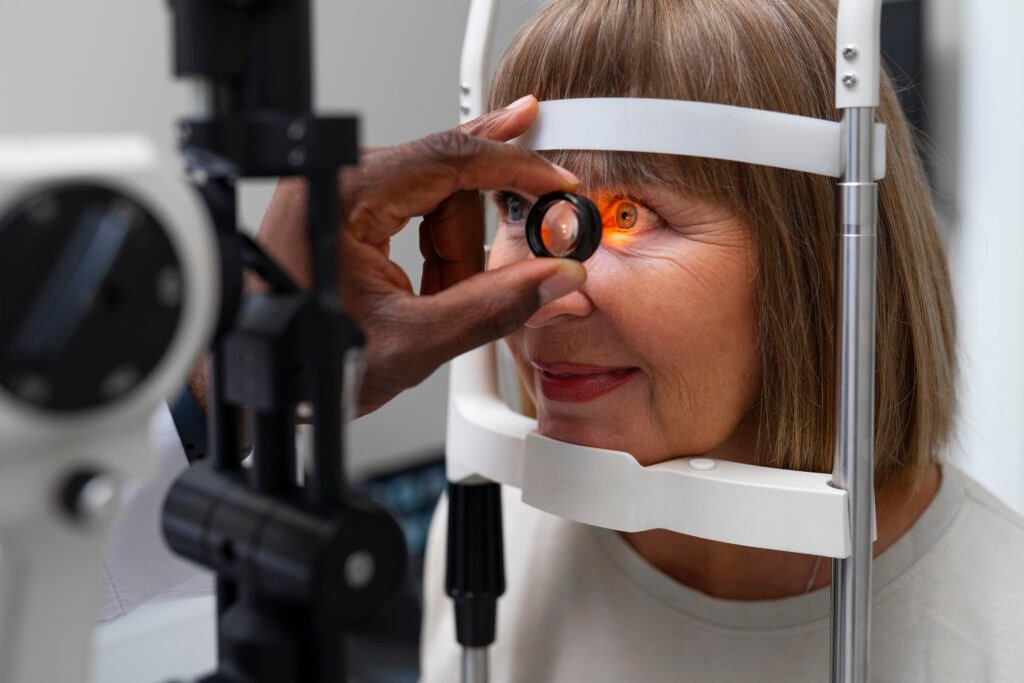Refractive surgery includes a group of procedures designed to correct vision problems such as nearsightedness (myopia), farsightedness (hyperopia), and astigmatism. By reshaping the cornea or replacing the eye’s natural lens, these surgeries reduce or eliminate the need for glasses and contact lenses, offering patients clearer vision and greater independence.

The most common procedures include LASIK, FEMTOLASIK, PRK, and refractive lens exchange. Each technique works by adjusting how light enters the eye and focuses on the retina. Depending on the patient’s needs, the procedure may involve reshaping the cornea with a laser or implanting a premium intraocular lens.
You may be a candidate if you:
A detailed evaluation will determine the most appropriate refractive procedure for your eyes.
Your consultation includes diagnostic studies such as corneal topography, pachymetry (corneal thickness measurement), and refraction testing. Our specialists will review your visual needs and recommend the safest and most effective technique, whether laser-based or lens-based.

Patients are advised to stop wearing contact lenses for the recommended period before surgery. On the day of the procedure, avoid makeup around the eyes and follow any instructions regarding preoperative drops.
The specific steps depend on the chosen procedure:
LASIK/FEMTOLASIK: A flap is created and the cornea reshaped with an excimer laser.
PRK: The corneal epithelium is removed and the surface reshaped.
Refractive lens exchange: The natural lens is replaced with a premium IOL.
All procedures are performed on an outpatient basis, take less than 30 minutes per eye, and are designed for maximum safety and precision.
Key benefits include:
Recovery varies by procedure. LASIK and FEMTOLASIK patients typically experience clear vision in 24–48 hours, while PRK recovery is more gradual. Refractive lens exchange provides immediate improvement but may require adjustment to the new lens. Follow-up care ensures the best visual results.
Checkups are scheduled the day after surgery, one week later, and again at one month. These visits allow the doctor to confirm proper healing, monitor vision stability, and adjust eye drop regimens as needed.
It depends on your corneal thickness, prescription, age, and lifestyle.
No, numbing drops are used.
Yes, though natural aging (like presbyopia) can affect vision later.
Yes, in most cases.
Lens-based options such as premium IOLs may be recommended.

Ready to enjoy clear vision without glasses or contacts? Find out if refractive surgery in Monterrey is right for you.